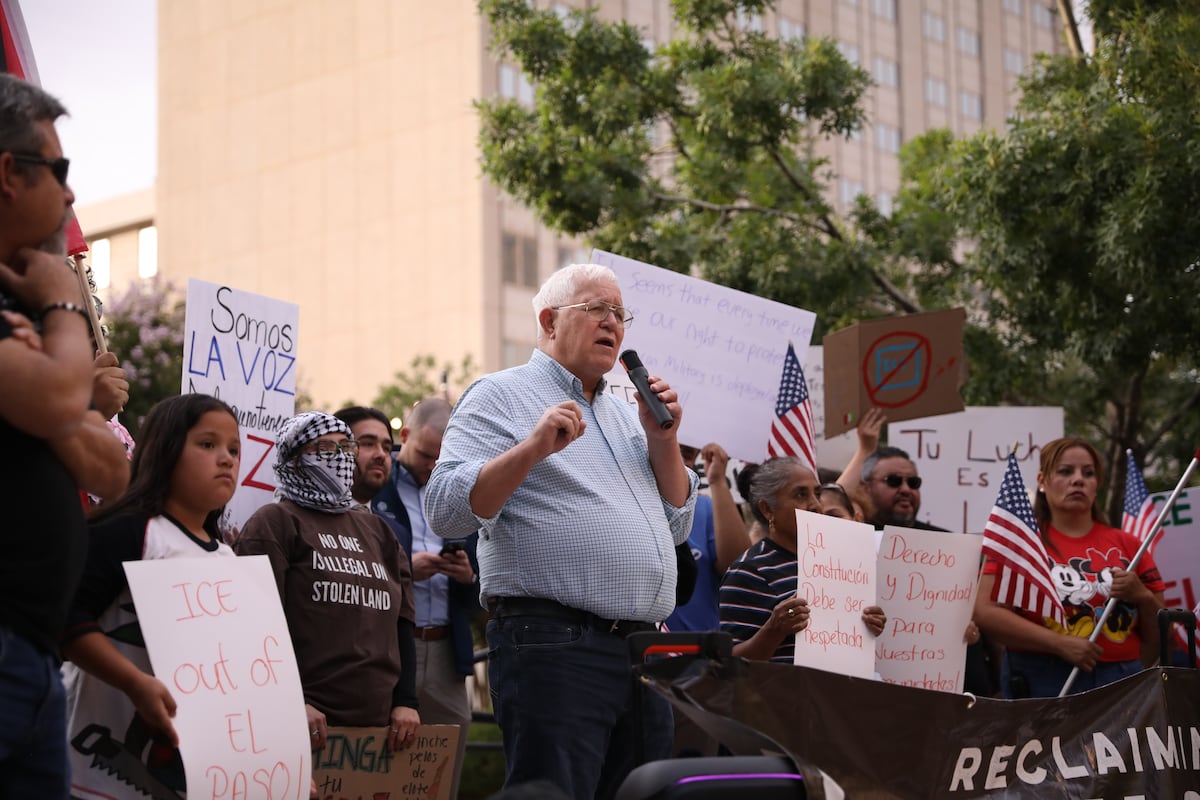We are looking for an independent senior editor
Immigration Raids Transform Businesses and Families in Los Angeles: "Not Seen Since COVID"
In collaboration with Puente News Collaborative, this article sheds light on the effects of recent immigration raids in Los Angeles, a city teeming with both Latino and immigrant communities. Hector's Mariscos, a local restaurant, has experienced a notable decline in its Mexican seafood sales. Normally bustling with patrons, only two of the seven tables were occupied on a recent Tuesday afternoon. "I haven't seen it like this since COVID," remarks Lorena Marín, the restaurant's manager, as cumbia music plays in the background. Marín, a U.S. citizen, reaches out to her regulars, urging them to visit.
"I'm staying home," replies a customer. "It's too dangerous out there with all those immigration agents."
The surge in arrests in California is impacting the finances of immigrant families and others. Surprisingly, even legal immigrants and U.S. citizens have been caught up in President Trump's raids. The 2004 fantasy film, “A Day Without a Mexican”, depicting a California devoid of Mexican immigrants, is alarmingly becoming a reality, with severe economic and personal repercussions.
Andrew Selee, president of the Migration Policy Institute, observes a shift in law enforcement focus. "They're targeting those integrated into the American economy rather than those with criminal records," he notes. In California, immigrants play a critical role, constituting 62% of agricultural workers and 42% of construction labor, according to the American Immigration Council. They also make up a significant portion of other sectors, including 85% of sewing machine operators in garment factories and 40% of entrepreneurs.
Nationwide, a significant share of agricultural and construction workers are foreign-born, mirroring California's dependence on immigrant labor. In STEM fields, nearly a quarter of workers are immigrants. Selee warns that the current enforcement trend could lead to significant economic consequences by targeting active workers instead of those with criminal records. In both California and the aging nation at large, nearly half of foreign-born individuals are naturalized U.S. citizens, offering crucial protection during raids.
Selee explains that the current strategy arose when "the Trump administration realized they weren't achieving significant numbers with traditional deportation targets." Now, the reach extends from Dallas to El Paso and rural Wisconsin, affecting both immigrants and employers.
In Waumandee, Wisconsin, dairy producer John Rosenow shares his struggle to find American workers willing to endure the industry's demands. "If you want dairy products, you'll need immigrant workers," he asserts. "Yes, we want to remove bad actors," Rosenow adds. "But those I know working on dairy farms are simply hardworking people doing jobs Americans refuse."
In California's San Joaquin Valley, Joe Del Bosque, a melon grower, hears of U.S. agents pursuing strawberry field workers near his farm. This region, known as the world's pantry, heavily relies on foreign labor, especially during harvest time, Del Bosque explains. His workforce will soon double as the harvest peaks. "This will disrupt the harvest and the food chain, harming American consumers," he warns. "These people work hard, particularly if they have family here or in Mexico."
The raids' emotional toll is apparent in families and has sparked protests in cities like Chicago, Seattle, and New York, with more expected this Saturday. In El Paso, protesters waved U.S. flags, chanting "No justice, no peace. Shame on ICE." Among them was Alejandra, a U.S. citizen and University of Texas student, who requested partial anonymity fearing repercussions for her mixed-status family. She joined the protest to honor her grandparents' sacrifices, who emigrated from Ciudad Juárez. "Look at who took that first step to give you the life you have now," she reflects.
In Dallas, a Guatemalan native has been avoiding work out of fear. "There's too much risk," says Gustavo, 34, who asked to withhold his last name due to his undocumented status. "I'm scared of tomorrow, of tonight. If I'm deported, who suffers? My family in Guatemala."
Strict immigration enforcement is a hallmark of Trump's popularity, but support may be waning. A Quinnipiac University survey shows Trump's immigration approval at 43%, with 54% disapproval, conducted after several protest-filled days.
In Santa Ana, California, Alexa Vargas, owner of Vibes Boutique, reports a 30% drop in sales. On a recent Tuesday, her usual bustling store was empty, with vacant parking spots and an absent street vendor. "It shouldn't be this dead at this time," says the 26-year-old. "People are too scared to go out, even if they're citizens but look a certain way. They don't want to risk it."
Reyna, a restaurant cook, informed her boss of her unease after hearing about immigrant arrests at local Home Depots. As an undocumented immigrant living in the U.S. for over 20 years, she fears becoming an ICE target. "I need to work, but honestly, I'm terrified to leave home," she confesses.
Her life is on hold. Reyna canceled her son's graduation party, stopped taking her kids to summer school, and ceased her autistic son's therapy sessions. She struggles with insomnia and daily headaches.
On Tuesday morning, immigration agents in an unmarked vehicle detained her husband's nephew, a 20-year-old undocumented Mexican national, outside their home. Her American-born autistic son pleaded to play on the front yard swing. "No, sweetheart. We can't go outside," Reyna tells him. "Why not?" "Police are taking people. They're taking people not born here," she explains.
Cindy Carcamo, a seasoned, award-winning journalist, has covered immigration for over 20 years, primarily with the Los Angeles Times. She will join Harvard University as a Nieman Fellow in 2026. @thecindycarcamo
Dianne Solis, a freelance journalist, has reported for The Dallas Morning News and The Wall Street Journal. Her work has aired on public radio KERA and Texas Standard. She has covered immigration for decades and holds degrees from Northwestern and California State University, and was a Nieman Fellow at Harvard. @disolis
Alfredo Corchado, executive editor of Puente News Collaborative and former Mexico and border correspondent for The Dallas Morning News, authored "Midnight in Mexico" and "Homelands." In 2009, he was a Nieman Fellow at Harvard. @ajcorchado
Aaron Montes, a KTEP reporter, contributed to this report from El Paso.















LEAVE A COMMENT